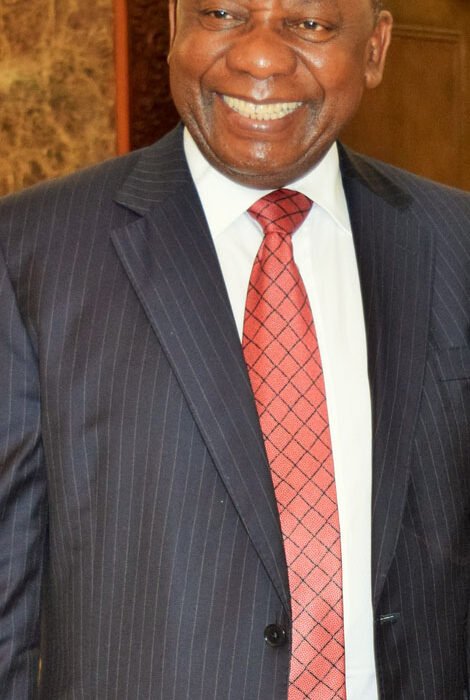ANC stalwart and business magnate takes over following Jacob Zuma’s troubled reign
Rosie Awori
A presidency almost 20 years in the making for business mogul, Cyril Ramaphosa, has finally been realized.
Following the sudden resignation of Jacob Zuma, the National Assembly appointed former Nelson Mandela right-hand man Cyril Ramaphosa president of South Africa on Thursday, February 15.
His presidency was seen to be in the making, after he was elected leader of the ruling, the African National Congress (ANC) party, when he narrowly defeated former president Jacob Zuma’s handpicked candidate and ex-wife, Nkosazana Dlamini-Zuma.
“I feel humbled for being given this privilege to serve the people of this country… it is a humbling occasion,” Ramaphosa said after his swearing-in.
Cyril Ramaphosa was born in 1952 in Soweto, a township southwest of the city of Johannesburg. He studied law at the University of the North at Turfloop.
He subsequently joined student politics and served as the branch leader of the South African Students’ Association.
During the anti-apartheid struggle he was detained on several occasions due to his student activism, but was able to complete his law studies and earned his degree through correspondence via the University of South Africa.
In the 1980s, he became an active member of the National Union of Mineworkers, serving as its general-secretary for nine years.
Ramaphosa was elected general-secretary of the ANC in 1991, and in the subsequent years was a key negotiator on behalf of the party during South Africa’s transition to democracy.
Ramaphosa’s political ambitions to be South African president were cut short in 1996. Although he was Nelson Mandela’s choice as his successor, another ANC stalwart Thabo Mbeki outmaneuvered him for the position.
Following that political setback, Ramaphosa quit full-time politics for business and amassed a fortune after founding investment company Shanduka Group, which accumulated stakes in platinum mines operated by Lonmin Plc, and a coal-mining venture with Glencore International Plc.
He also secured the McDonald’s Corp. franchise in South Africa and became chairman of MTN Group Ltd., Africa’s biggest mobile-phone company, and Bidvest Group Ltd., a holding company with multiple interests.
Cyril Ramaphosa is believed to be one of one of South Africa’s wealthiest business men.
As new president, he has his work cut out for him especially trying to restore the country’s image and economic status, which under Mr. Zuma’s leadership declined drastically.
From a country that once inspired the world with its rapid economic growth and technovations, South Africa has become synonymous with poverty, corruption and an escalating crime rate .
The man Ramaphosa is replacing, former president Zuma’s term in office was marked by issues of ethics, corruption and a major rape accusation.
In 2006, Mr. Zuma was found not guilty of raping a 31-year-old family friend. He testified in court that she had seduced him by wearing a short skirt. He also said he had taken a shower afterward to minimize the risk of contracting H.I.V.
As he departs the political scene Mr. Zuma leaves as one of the weakest leaders in South Africa’s post-apartheid history. His tenure lacked lasting policy successes, his words, actions and appointments repelled investors, which had the local currency, the rand spiraling lower.
Although Cyril Ramaphosa’s appointment has been a welcomed one, the opposition still feels the ANC has been in power for too long and that the winds of change must blow through the country’s governance.
“We don’t have a Jacob Zuma problem, we have an ANC problem,” Mmusi Maimane, leader of the biggest opposition party, Democratic Alliance, has been quoted as saying, shortly after congratulating Ramaphosa on his appointment.
President Ramaphosa has a mammoth task ahead of him and must find a way to steer South Africa back to her former glory and lead her to even greater heights.













